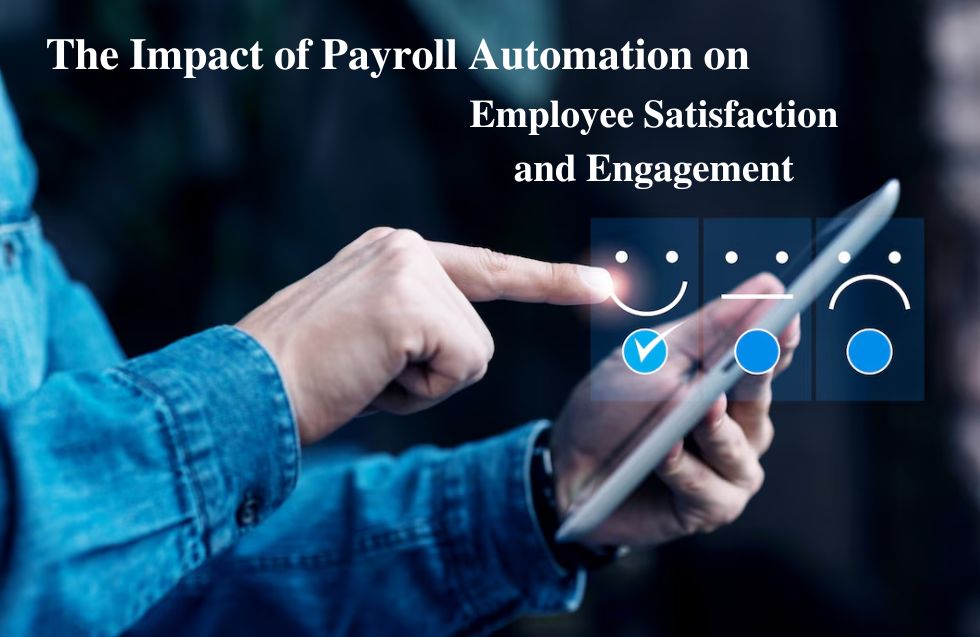In today’s fast-paced business world, automation is revolutionizing various industries, including human resources (HR) and payroll management. One significant advancement is the introduction of payroll automation systems, which streamline processes, reduce errors, and ultimately lead to greater employee satisfaction and engagement. But how exactly does payroll automation influence employee morale? Let’s explore the impact it has on satisfaction, trust, and overall engagement in the workplace, backed by data and tools.
1. Accuracy and Timeliness of Payments
One of the most critical aspects of employee satisfaction is timely and accurate compensation. Traditional payroll systems, which rely heavily on manual calculations and paperwork, often result in errors, miscalculations, or delays in payment. These errors can cause frustration, financial stress, and disengagement among employees.
Payroll automation minimizes human error by ensuring that all payments are processed correctly, on time, and according to the latest tax regulations. Employees can trust that their wages will be paid accurately every time, boosting their overall satisfaction.
According to the American Payroll Association (APA), automation can reduce payroll processing errors by up to 85%, leading to increased employee trust and reduced payroll disputes.
When employees feel financially secure and confident in receiving accurate payments, they’re more likely to stay engaged and committed to their roles.
2. Reduced Administrative Burden
Manual payroll processes are time-consuming and can divert HR teams from focusing on higher-level tasks such as employee development and strategic planning. Payroll automation significantly reduces administrative work by automating calculations, tax filings, and report generation.
Employees also benefit from this reduced burden. Automated systems offer quick resolutions to payroll issues, increasing transparency. Self-service portals allow employees to access pay stubs, tax documents, and benefits, which fosters a positive relationship between the workforce and HR departments.
A study by PwC revealed that organizations using payroll automation tools experience an average 35% reduction in time spent on payroll processing. This allows HR teams to focus on more meaningful work, such as employee engagement strategies.
3. Increased Trust in the Organization
Employees’ trust in their employer is key to fostering a positive and engaged workforce. Inconsistent payroll practices, discrepancies, or delays can quickly erode that trust. Automated payroll systems establish a strong foundation of reliability and transparency, ensuring that employees’ compensation is handled with care and precision.
When employees trust that the company values their time and compensates them fairly, they are more likely to be loyal, motivated, and engaged in their work. Trust breeds commitment, and committed employees contribute to a positive and productive workplace culture.
4. Enhanced Employee Engagement through Self-Service Features
Modern payroll automation systems often include self-service features that empower employees to take control of their financial information. Employees can easily view their pay history, update tax withholding, review benefits, and even request time off—all from a user-friendly platform.
This sense of autonomy enhances employee engagement, as it gives workers greater control over their personal data and finances. When employees can manage payroll-related tasks on their own terms, they feel more valued and respected within the organization.
According to KPMG, companies that offer self-service payroll portals see a 20% increase in employee satisfaction, as it gives them more control and access to important payroll data.
5. Improved Compliance and Reduced Stress
Payroll automation helps organizations stay compliant with evolving labor laws, tax codes, and regulations. For employees, knowing that their company is fully compliant with legal standards provides peace of mind. Employees don’t need to worry about tax discrepancies, incorrect deductions, or legal issues related to their compensation.
This compliance significantly reduces employee stress, allowing them to focus on their job without the distraction of potential financial complications. Stress reduction, in turn, leads to higher job satisfaction and productivity.
6. Creating a Fair and Transparent Work Environment
Payroll automation eliminates subjective errors or biases that can occur with manual processes. Automated systems ensure that everyone is compensated fairly according to the agreed-upon pay structure, removing inconsistencies that could cause dissatisfaction or perceptions of favoritism.
In a transparent work environment where employees feel they are treated equitably, engagement levels rise. Employees are more likely to work collaboratively, be innovative, and stay committed when they believe in the fairness of the organization.
Popular Payroll Automation Tools
Several payroll automation tools are gaining popularity for their ease of use, reliability, and ability to integrate with other HR systems. Here are a few top options that businesses can leverage to enhance their payroll processes:
- Gusto: A cloud-based payroll tool ideal for small and medium-sized businesses. It offers payroll processing, tax filing, and employee benefits management, with a user-friendly self-service portal.
- ADP Workforce Now: This powerful solution automates payroll, tax, and compliance processes. ADP also provides additional features for benefits management, time tracking, and talent management.
- QuickBooks Payroll: Best suited for small businesses, QuickBooks Payroll offers easy-to-use payroll processing, direct deposit, tax filing, and employee management features.
- Paychex Flex: This robust tool caters to both small and large enterprises, providing payroll automation, HR support, and compliance management, all accessible from a single platform.
- Rippling: A modern tool that seamlessly integrates payroll with employee management, benefits administration, and device management, simplifying HR tasks for growing companies.
Conclusion
Payroll automation isn’t just about cutting costs and improving efficiency—it’s a powerful tool that directly influences employee satisfaction and engagement. By offering timely and accurate payments, reducing administrative burdens, increasing trust, providing self-service options, ensuring compliance, and promoting fairness, payroll automation significantly enhances the employee experience.
In today’s competitive market, organizations that invest in automated payroll systems are more likely to retain top talent, boost morale, and create a more engaged, productive workforce. With automation tools like Gusto, ADP, QuickBooks, and Paychex Flex, businesses can revolutionize their payroll processes, ultimately leading to a more satisfied and engaged team.












